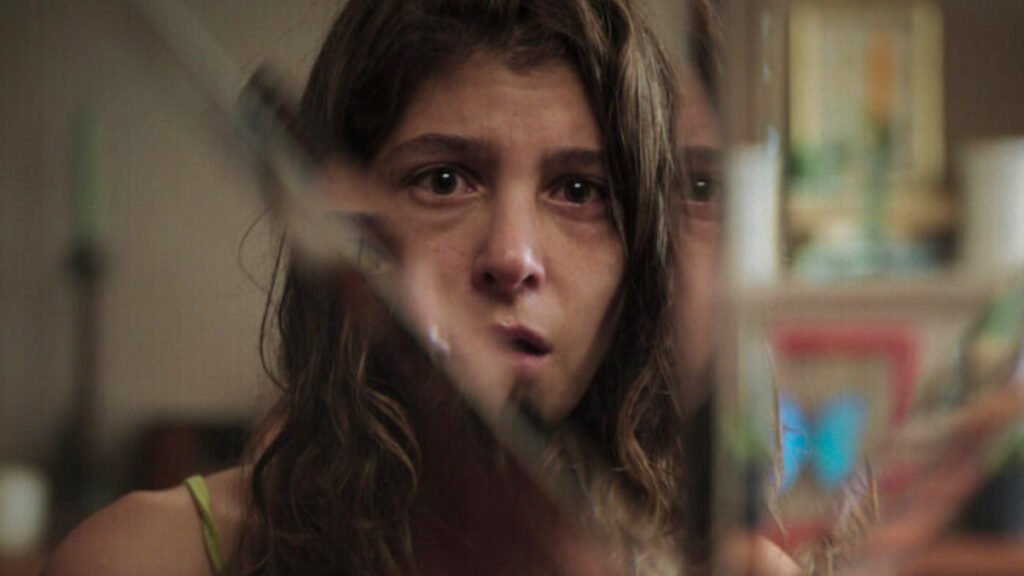Delirium Review

Director: Julio Jorquera Arriagada and Rafael Martínez Moreno
Date Created: 2025-07-18 20:41
2
Delirium Review: Directed by Julio Jorquera Arriagada and Rafael Martínez Moreno, the Colombian Netflix show Delirio is based on the book by Laura Restrepo. The series has eight episodes, each about 45 minutes long. It stars Juan Pablo Raba as Aguilar, Estefanía Piñeres plays Agustina, and Paola Turbay, Juan Pablo Urrego, and César Mora join them in key roles. The show is set in Bogotá during the 1980s, and the psychological drama attempts to sweep through mental illness, family secrets, and emotional trauma in the case of a woman who suddenly lapses into a strange condition of madness—and a husband who is hell-bent on finding out why.
Delirium Review
When I began watching the Colombian series Delirium, I was hooked by the setup. A man comes back from a weekend vacation and discovers that his wife doesn’t know him—she’s confused, frantic, and not herself at all. What happened to her during those missing days? It’s a wonderful mystery. The series introduces some plotlines: her past, a past with a violent one named Midas, and even a nefarious drug connection.
But before we realise, the series starts branching off in too many paths. Instead of building the mystery in a calculated way, the series Delirium throws in all these time jumps, flashbacks, and sideplots that had me wondering what the central thing was. I enjoy a good non-linear setup, but here it was more of a puzzle that would not fit together.

Netflix’s Delirium tackle heavy subjects such as mental illness, child abuse, love, and emotional breakdown. But it does it in a helter-skelter manner. Sometimes it tries to get us to care about Agustina, who obviously suffered a horrific experience. But the longer the scenes go on, the more mundane—and gratuitous—the pain of hers becomes, and the sympathy begins to wear off.
Instead of stirring my sympathy, it drove me away. I lost sympathy for her and felt more claustrophobic with the never-ending grief. It was like the show was stuck in her pain, with not giving the viewer any space to catch their breath and reflect on what they had just witnessed.

I so wished to love the titular hero and husband, Fernando Aguilar. He’s a professor, a wise and mature-looking man. But in Delirium series, he acts erratically. Even as others try to caution him to be cautious, he insists on returning to dangerous emotional territory.
Agustina, however, has been a maddening but interesting character. She is flighty, and we catch glimpses of what is going on in her head, but never quite enough to really know her. Midas, the guy from her past, brings crime into the novel, but even he is not developed as much as he might be. In general, Delirio’s characters were too dramatic. And having a show that is struggling with this kind of sensitive subject matter and that is not realistic is a large problem.
Also Read: Wall to Wall Review: Unforgettable but Overstuffed Psychological Drama
One of the worst things about the Delirium series was how it shifted in tone everywhere. Is it a psychological thriller? A crime drama? A tragic love story? It attempts to be all three at times—and fails at all three. There are flashbacks of past abuse, clandestine love affairs, illicit family histories, and even side storylines about drugs. But instead of tying it all together in an effective, emotional arc, the show is more like a puzzle made out of pieces from different boxes. As a viewer, I was constantly waiting for it to “click.” It never did.

To be fair, there are a few good things about Colombian series Delirium. Obviously, the cast is good, especially Estefanía Piñeres as Agustina. She works hard to make the depth of a woman on the edge feel real. Production design is also quite good—the 1980s Bogotá backdrop is well-handled, and the look of the series as a whole is good.
And I do appreciate that this show at least attempted to put mental illness in the forefront. It’s not something that is ever mentioned much in Latin American telenovelas. If they had done it a bit more delicately and explained it a bit more, it could have been truly powerful.

Netflix Delirium Review: Summing Up
In the end, Delirium exhausted me more than the series infuriated me. It attempts to be deep and mysterious, but ends up being perplexing and emotionally remote. I did not dislike it—but I did not love it. There were just too many moments where I was confused and not in the good way. It was like it was work to watch this show, not a experience. If you’re in the mood to see a cerebral drama that actually gets inside the brain of a human being, this might not be the series for you.
